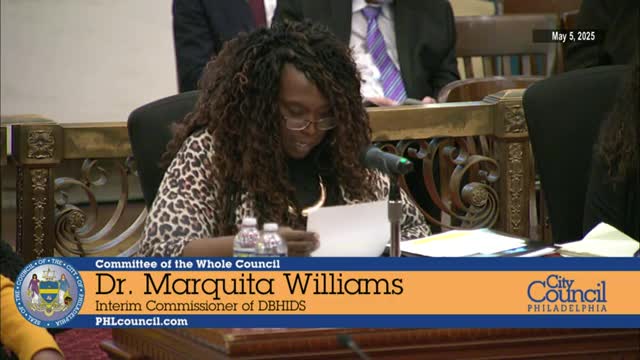Article not found
This article is no longer available. But don't worry—we've gathered other articles that discuss the same topic.
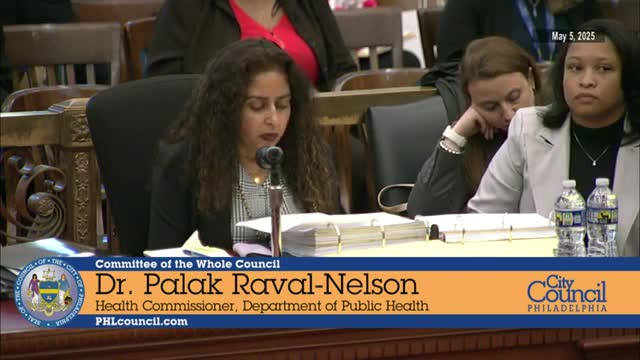
Health department seeks $161.4 million for FY26, highlights Northeast health center expansion and Philly Joy Bank pilot
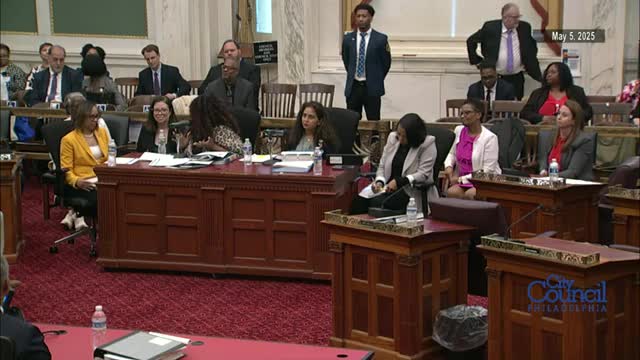
Committee of the Whole votes to recess until next scheduled meeting
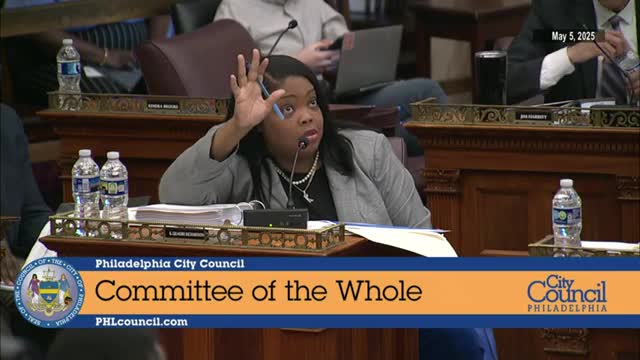
Sudden provider closure raises council concerns about oversight; Community Behavioral Health says network can absorb members
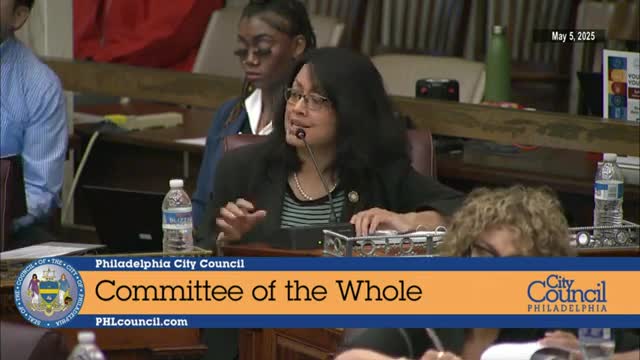
Council probes vaping enforcement as health officials outline education and enforcement funded by JUUL settlement
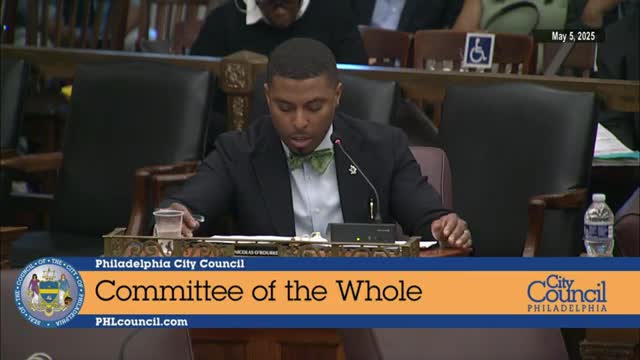
Council presses departments on syringe-exchange funding cuts; health officials say HIV rates have not spiked, provide syringe-collection data
